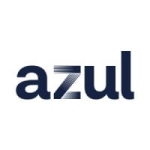What is our primary use case?
I usually use the single model or the clustering model of the solution. We deploy the dual application, ADF application, and BPM application, and there is a different scenario for each of them even though they all use WebLogic services. Each use case is somewhat different. It is our customers that use WebLogic. I deal with mid-size companies and also enterprise size companies. We are resellers and I'm the technical manager.
What is most valuable?
WebLogic has a very robust server so the product is robust. If there are issues it's usually because there's been a misconfiguration or maybe the application deployed under the WebLogic server has errors. Another positive is that you don't need to go editing external files - the console and the enterprise management tools that Oracle provide for monitoring are really easy to work. The parameters and everything can be found on the console.
Another point is that it has a different way for configuring and working with the application server. You have the EM, the console, and the WLST which you can use the scripting for. You can even extract the WebLogic server from another dual application which can be used in a programming application so you have a console over their application service.
One other feature that is useful is that you can extract WebLogic from different scenarios and from different environments. Because it's based on Java you can run with WebLogic on a PC which has Windows on a server which has AIX or Linux or any other environments. It can handle all of the environments. There are so many good things about this application, I could go on for an hour.
What needs improvement?
I think the only area where Weblogic could be improved would be if they were to develop a solution for smaller applications. WebLogic is really a solution for enterprise companies, meaning that it requires a lot of RAM. Sometimes you're working on a smaller application but WebLogic still needs a huge amount of RAM for it to work. Jboss or Apache, on the other hand, would start with the minimum amount of RAM, for example, 300 megabytes and with WebLogic, you need 3GB or 4GB. Because it's very heavy, the extraction time is longer compared to other solutions. Jboss would start in seven seconds, whereas WebLogic would start in 40 or 50 seconds. If there was a light version of WebLogic that would be useful.
I would also like to be able to turn off features. For example, if I don't want to use the GMS, I can't turn it off.
For how long have I used the solution?
I've been using this solution for 10 years.
Buyer's Guide
WebLogic Suite
January 2026
Learn what your peers think about WebLogic Suite. Get advice and tips from experienced pros sharing their opinions. Updated: January 2026.
881,757 professionals have used our research since 2012.
What do I think about the stability of the solution?
This is a very stable solution.
What do I think about the scalability of the solution?
The product has great scalability. It can handle many concurrent users because of its coherent architecture.
How are customer service and support?
We don't need any support for this solution but many of our customers get the Patch Updates from the Oracle website.
Which solution did I use previously and why did I switch?
I think Oracle WebLogic and IBM Websphere are the best application servers that anybody can use for the Java application. I haven't worked with Websphere but from what I've read it's good, although it's only relevant for enterprise applications. Oracle WebLogic can be used for both enterprise and standard applications, and also in the development environment.If you're looking at midsize applications, then there are other competitors as well, whether from Oracle, Jboss, Tomcats, all of them. For enterprise applications, I think WebLogic and WebSphere are the two main players in the market.
How was the initial setup?
The initial setup of WebLogic is very easy. You only need about 10 minutes to start the application. Compared to other Oracle products, it's very straightforward and easy to configure.
What's my experience with pricing, setup cost, and licensing?
I'm not involved in licensing. I know that Oracle has a site called shop.oracle and you can check it there. There is a support team and online sales team that could help with that.
What other advice do I have?
If you take the time to go through the documentation of this product and its features you'll become familiar with the enterprise standards. It's a good path to becoming familiar with enterprise architecture. Even from an academic perspective, learning and using this application server can be a good start to understanding what can be achieved with an enterprise application server.
I would rate this solution a nine out of 10.
Which deployment model are you using for this solution?
On-premises
Disclosure: My company does not have a business relationship with this vendor other than being a customer.












